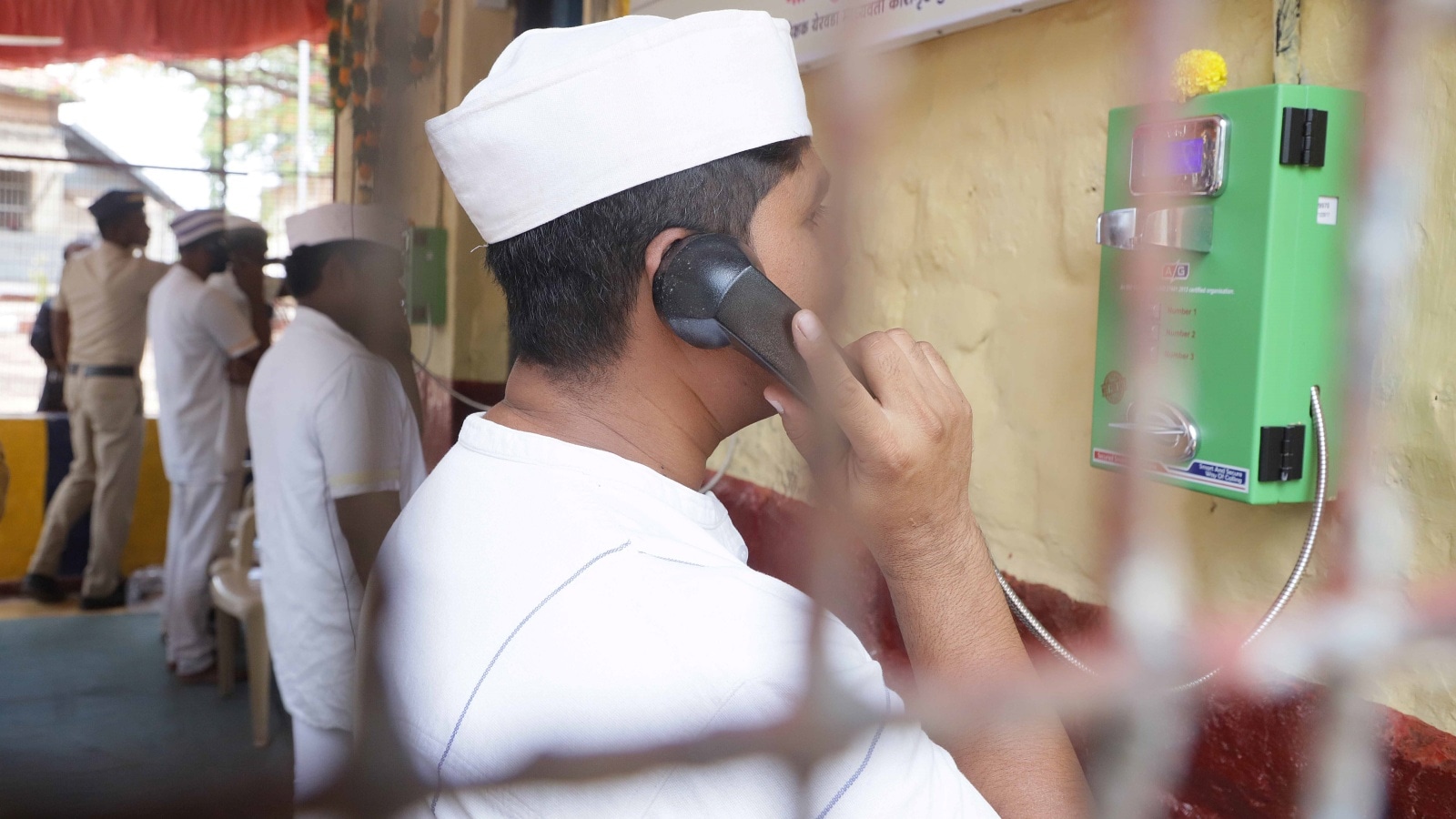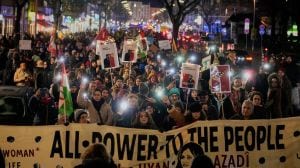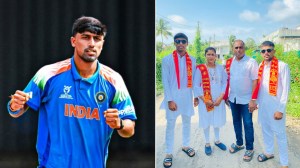Why can accused persons in prison contest polls but not vote?
Section 62 of the Representation of People Act, 1951 (RP Act) provides a series of restrictions on the right to vote including sub-clause (5). Here is a look.
 The Supreme Court has held that free and fair elections are a part of the ‘basic structure’ of the Constitution of India, and any laws or policies that would violate this principle could be struck down. But voting is not a fundamental right. (Pavan Khengre)
The Supreme Court has held that free and fair elections are a part of the ‘basic structure’ of the Constitution of India, and any laws or policies that would violate this principle could be struck down. But voting is not a fundamental right. (Pavan Khengre)Last week, Amritpal Singh, the jailed head of the pro-Khalistan outfit Waris Punjab de, announced his intention to contest the Lok Sabha elections from Punjab’s Khadoor Sahib seat, to be held on June 1.
Though his ability to campaign may be limited, his right to contest polls while facing criminal charges will not be under question unless he is convicted. However, he will be bared from casting his vote in the upcoming elections — much like other accused people in prisoners across India.
What is the legal status of the right to vote and the right to be elected? How does the law deal with voters and candidates who are imprisoned?
The right to vote and the right to be elected are ‘statutory rights’
In 1975, the Supreme Court in the case of Indira Gandhi v Raj Narain recognised that free and fair elections are a part of the ‘basic structure’ of the Constitution of India, and any laws or policies that would violate this principle could be struck down.
Though free and fair elections have been placed on the highest constitutional pedestal, the Supreme Court has held that the rights to elect and be elected do not enjoy the same status. For instance, a five-judge constitution Bench in 2006, in the case of Kuldip Nayar v. Union of India held that the right to vote (or the right to elect as it was called) is “pure and simple, a statutory right”. This means that voting is not a fundamental right and can be repealed.
The same was held for the right to be elected by the Bench, ruling that laws enacted by Parliament could regulate both these statutory rights.
Bar against contesting elections only after conviction
Section 8 of the Representation of People Act, 1951 (RP Act) is titled “Disqualification on conviction for certain offences”. Suppose a person is convicted of any of the offences in the exhaustive list provided in the provision. In that case, they will be disqualified from contesting elections to Parliament or state legislatures from the date of conviction onwards and face further a six-year disqualification from contesting in elections beginning from the date of their release.
This disqualification only kicks in once a person has been convicted and does not apply if they have only been charged with criminal offences. In recent years, this section has seen two major challenges in the Supreme Court.
In 2011, the Public Interest Foundation filed a petition arguing that persons who have criminal charges framed against them or file false affidavits regarding their criminal history should also be disqualified. However, a five-judge bench unanimously held that only the legislature could alter the RP Act.
In 2016, advocate and former BJP spokesperson Ashwini Kumar Upadhyay filed a petition seeking a permanent disqualification for convicted persons. This case is still ongoing, and in November 2023 the Apex Court, taking note of delays in criminal cases against MPs and MLAs, ordered the Chief Justices of all High Courts to register a suo motu case titled “In Re: Designated Courts for MPs/MLAs” for HCs to issue directions for the “expeditious and effective” disposal of these cases. However, according to a report submitted to the court in April 2024, there are still 4,472 such cases pending.
Exceptions to disqualification
The Election Commission of India (ECI) is empowered under Section 11 of the RP Act to “remove” or “reduce” the period of disqualification. In 2019, the ECI used this power to reduce the period of disqualification faced by Sikkim Chief Minister Prem Singh Tamang who was released following a one-year prison sentence in 2018 for misappropriating funds in the procurement of cows. The Sikkim Krantikari Morcha leader went on to win in the bye-election for the Poklok Kamrang assembly seat.
Another situation where a disqualified MP or MLA can still contest is when their conviction is stayed on appeal to a higher court. In 2019 the Supreme Court held that once a conviction is stayed “the disqualification which operates as a consequence of the conviction cannot take or remain in effect”.
Dhananjay Singh, a former Bahujan Samaj Party MP whom a district court convicted for kidnapping in 2020, approached the Allahabad HC for a stay on his seven-year sentence which would allow him to contest in Lok Sabha elections. However, though the court granted bail, the court refused to stay the conviction stating that “it is the need of the hour to have purity in politics”.
Bar against the right to vote for confined persons
Section 62 of the RP Act provides a series of restrictions on the right to vote including sub-clause (5) which states in broad terms “No person shall vote at any election if he is confined in a prison, whether under a sentence of imprisonment or transportation or otherwise, or is in the lawful custody of the police”.
With an exception provided for those in preventive detention, this provision effectively bars every individual who had criminal charges framed against them from casting their vote unless they have been released on bail or have been acquitted. In 1997, the Supreme Court rejected a challenge to Section 62(5) in the case of Anukul Chandra Pradhan, Advocate, Supreme Court v. Union of India.
The petitioners had argued that the rule violated the right to equality by denying voting rights to undertrials and those who are detained for being unable to furnish the bail amount while allowing those released on bail to vote.
However, the court rejected this argument on four grounds. First, the court re-affirmed that the right to vote was a statutory right and could be subject to statutory limitations. Second, the court held that there is a “resource crunch” as infrastructure would have to be provided and police would have to be deployed. Third, a person in prison because of their conduct “cannot claim equal freedom of movement, speech and expression”. Last, restrictions on prisoners’ right to vote are reasonable as it is connected to keeping “persons with criminal background away from the election scene”.
This decision has been relied upon by both the Supreme Court (in 2023) and the Delhi High Court (in 2020) in the recent past to dismiss pleas seeking voting rights for prisoners.
- 01
- 02
- 03
- 04
- 05





































